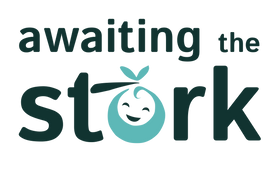Honoring pregnancy and infant loss awareness month

October is a time when we come together to raise awareness about a painful but often silent struggle: pregnancy and infant loss. In the United States, about 1 in 4 pregnancies end in miscarriage, and 1 in 160 end in stillbirth. These numbers reflect the heartbreaking reality that too many families face—grieving the loss of a pregnancy, a baby, or dreams of parenthood.
To all the families grieving a loss—whether it be a pregnancy, a baby, infertility struggles, or adoptions that didn’t go as planned—know that you are not alone. To the women who feel like their bodies have betrayed them, and the men who feel like the forgotten mourners, we see you, we hear you, and we stand with you.
Acknowledge the unseen grief
Pregnancy and infant loss are often accompanied by silent suffering, grief that goes unnoticed or unspoken. But this pain is real, and it deserves to be acknowledged. While words may fall short of healing such profound wounds, simply knowing that others recognize your pain can make a difference.
For many, October can be an especially heavy time. It's a reminder of what could have been, and the dreams that were lost. If you know someone who has experienced this kind of loss, now is a reminder to check in with them. Show up for them, listen to their story, and ask what they may need. Sometimes, just knowing that someone cares can help ease the burden of grief.
Ways to cope with pregnancy and infant loss
Grief after losing a pregnancy or infant can feel overwhelming, but healing and progress are possible. Below are some ways to help cope with the pain:
1. Allow yourself to grieve
Grieving is a personal journey, and there is no “right” way to do it. Allow yourself to feel the emotions that come, whether it’s sadness, anger, confusion, or guilt. You don’t have to rush through these feelings or put on a brave face. Honor your emotions and give yourself permission to grieve in your own time and way.
2. Seek support from loved ones
While the pain of loss is deeply personal, you don’t have to carry it alone. Share your feelings with trusted friends or family members who can offer support. Sometimes, opening up to someone who cares can be a small but significant step toward healing.
3. Join a support group
Connecting with others who have been through similar experiences can provide comfort and solidarity. Organizations like March of Dimes and Postpartum Support International offer resources, including online support groups and meetings, for those navigating pregnancy and infant loss. Hearing others’ stories can remind you that you are not alone in your grief.
4. Create a memorial
Many families find healing in creating a special way to remember their lost baby or pregnancy. This could be planting a tree, creating a memory box, lighting a candle, or writing a letter to your child. Acknowledging the loss with a physical or symbolic gesture can provide a sense of closure and peace.
5. Focus on self-care
Grief can be physically and emotionally exhausting. It’s important to take care of yourself during this time. Rest when you need to, nourish your body with healthy food, and engage in activities that bring you comfort, whether that’s going for a walk, meditating, or spending time with loved ones.
For those who want to support grieving families
If someone close to you has experienced pregnancy or infant loss, you may feel unsure of how to support them. Here are a few simple ways to show your love and compassion:
- Reach out: Send a message, give them a call, or stop by for a visit. A simple “I’m thinking of you” can mean the world to someone who is grieving.
- Offer help: Grieving can make everyday tasks feel overwhelming. Offer to help with meals, childcare, or household chores. Just being there in practical ways can provide immense relief.
- Be present: Sometimes, the best thing you can do is sit with them in their grief. You don’t need to have the right words or fix anything—just being there, offering a listening ear or a comforting presence, can make all the difference.
Healing and hope
While the pain of losing a pregnancy or infant may never fully go away, healing and hope are possible. Each person’s path to healing is unique, but with time, support, and self-compassion, it’s possible to find peace again. And for those who have experienced loss, it’s important to remember: you are not defined by your grief. You are allowed to find joy, hope, and new dreams for the future.
During Pregnancy and Infant Loss Awareness Month, let’s continue to spread awareness, offer compassion, and stand in solidarity with the families who are grieving. Let’s remind them that they are seen, they are loved, and they are never alone.
Resources for support
- March of Dimes: Provides resources, support, and advocacy for families dealing with pregnancy loss and infant health complications.
- Postpartum Support International: Offers resources, online support groups, and counseling services for families experiencing loss and postpartum challenges.
If you or someone you know is struggling with pregnancy or infant loss, these organizations are here to help you find the support and community you need during this difficult time.


